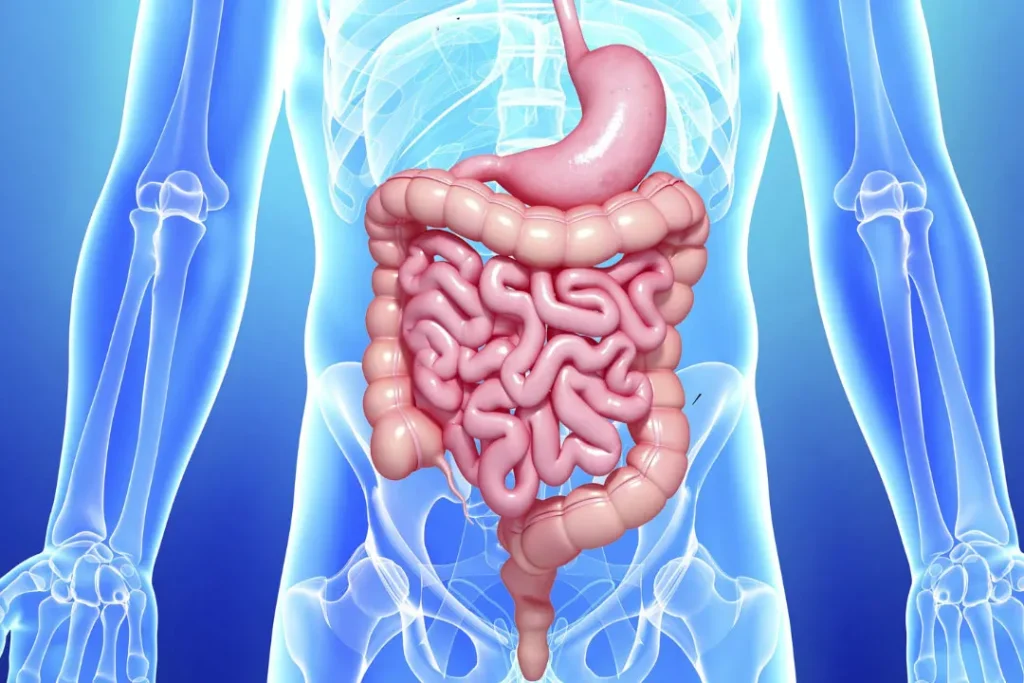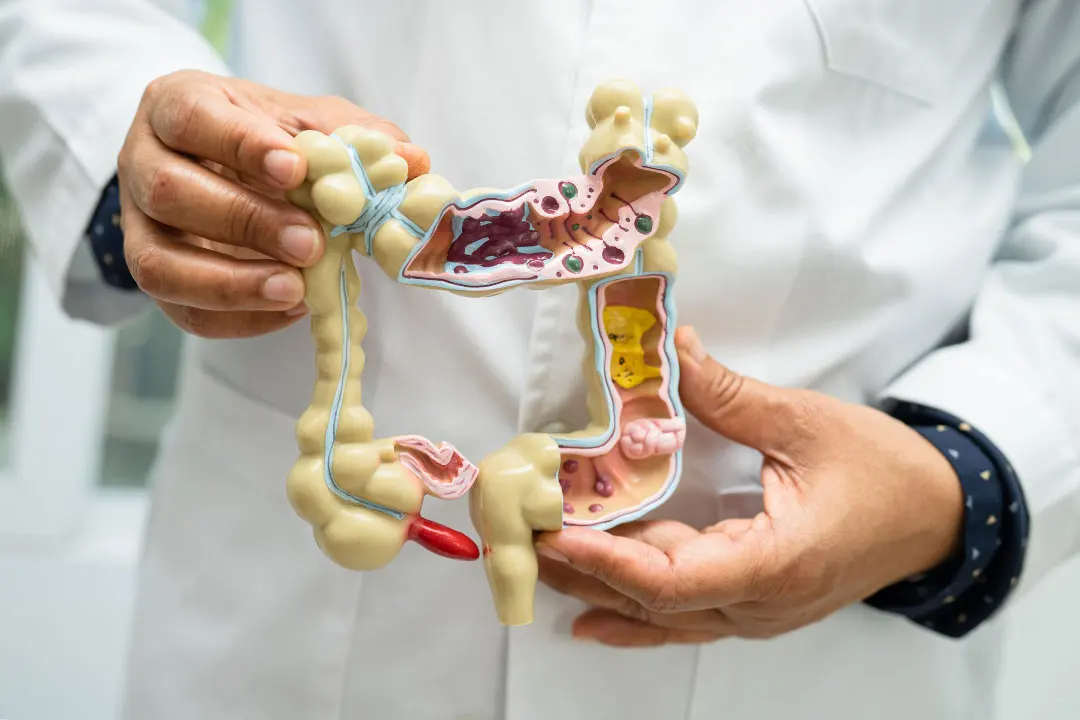Don’t try to tough it out! Frequent digestive issues like bloating, gas, diarrhea, or constipation can be signs of an imbalanced gut and can lead to serious health problems. In this article, we’ll discuss how paying attention to these symptoms can provide insights into your gut health and guide you toward necessary dietary and lifestyle adjustments.
You May Also Like:
7 Powerful Supplements for Nerve Health You Should Know About
Should You Try Supplements to Improve Gut Health? Here Are the Facts.
Worried About Your Health? 7 Red Flags Of An Unhealthy Gut And What You Can Do About It is an original (HealthXWire) article.
Watch Video For This Article:
The importance of a healthy gut
The liver, gallbladder, stomach, intestines, and every other part of your digestive system are essential to keeping you healthy. Every aspect of your digestive system is crucial, from your gallbladder, which helps your body break down fats, to your pancreas, which produces hormones, including insulin. These organs are essential for ensuring your body, skin, and mind are healthy. Sometimes, a portion of your digestive system can become dysfunctional, affecting its ability to protect you.
If parts of your digestive system are not working normally, you may be able to tell through issues like drastic weight changes, skin conditions, and mental health conditions. These can all be signs something is happening with your gut. By noticing these issues and discussing them with a healthcare physician, you might discover that minor issues such as bad breath can indicate gastrointestinal problems. Below, we’ll discuss seven red flags that can indicate poor digestive health and suggest a premium supplement to help you boost gut health.

Seven red flags that can point to poor digestive health
Because the digestive system interacts with most body parts, it can be challenging to distinguish the signs of poor digestive health. Even your skin can point to signs of issues with your digestive tract. By looking at these seven red flags and talking to your doctor, you may solve internal issues originating in your digestive system:
1. Bowel Disturbances
Numerous digestive diseases can cause bowel disturbances. From blockages to diarrhea, the underlying issues of bowel disturbances stem from your gut. While experiencing diarrhea or constipation for a few days can occur randomly, it’s essential to understand that if it lasts longer, the underlying issues could worsen if not treated. Many factors can cause these disturbances, such as lactose intolerance, diabetes, or irritable bowel syndrome. Even celiac disease can cause diarrhea. Never ignore chronic bowel disturbances because they could indicate further health issues.
2. Chronic Fatigue
Feeling exhausted can instantly ruin your day. If you’re experiencing fatigue after getting a whole night’s rest, it may be tied to your digestive health. A study that analyzed 100 people reveals that individuals who suffer from chronic fatigue syndrome (CFS) have higher levels of gut bacteria compared to those who don’t have CFS. More than half of those patients also had irritable bowel syndrome, meaning that chronic fatigue could be related to an imbalanced digestive system.
3. Drastic Weight Changes
If you find yourself losing or gaining weight without a change in diet or exercise, your digestive system may be taking a hit. Your liver is part of your digestive system, and liver disease can cause you to lose weight rapidly. Diabetes is another issue that can cause involuntary weight loss. While losing weight may seem beneficial, losing more than 5% of your body weight after about six months could be cause for concern. If you’re having trouble identifying the cause of your weight loss, it could be related to your digestive health.
4. Infection Frequency
Your lymphatic system can affect how frequently you get infections because it protects your body from infections while absorbing fatty acids and vitamins. It does this by using a liquid called ‘lymph’ that travels through a series of vessels (similar to blood vessels). They travel to lymph nodes, which filter and destroy harmful bacteria. If your lymphatic system runs poorly, it could result in more frequent infections. Certain fats may not be carried from your intestines to your bloodstream, and parts of the digestive system (like the liver) could also be affected. Therefore, frequent infections could be a sign of an unhealthy gut and potential issues with your lymphatic system.
5. Bad Breath
While brushing your teeth and using mouthwash can cover bad breath, they don’t remove the underlying issues. Gastrointestinal issues can ultimately cause bad breath or halitosis. From gastroesophageal reflux problems to bowel obstructions, the smells you may be experiencing could be a sign of GI dysfunction. When this happens, acids and enzymes can travel up through your intestines and esophagus until they reach your mouth and become a form of bad breath. If your halitosis is not leaving after a good cleaning, GI issues could be the root cause.
6. Skin Conditions
The direct connection between your digestive system and your skin is sometimes called the gut-skin axis. This axis represents the bidirectional pathway between your skin and your digestive system. For instance, your skin produces sebum that moisturizes skin and protects it from disorders. Your gut microbes are responsible for producing this sebum. So, if your digestive system is compromised, it can directly affect your skin.
Typically, gut issues can cause an array of skin conditions. Similarly, specific diseases that affect your gut can have skin conditions that coincide with them. Inflammatory bowel disease can cause erythema nodosum (red-colored lumps on the shins). Another example is celiac disease, which can cause dermatitis, or Crohn’s disease, which can cause psoriasis.
7. Mood Swings
The concept of relating your mood to your digestive health is relatively new. A new field called nutritional psychiatry helps patients understand how gut health and diet can affect their mood. Similar to your skin, the brain is intertwined with gut health. When your gut health is disrupted, you can succumb to depression or anxiety. A recent study highlighted by Harvard Health discusses how avoiding inflammation-producing foods may guard against depression. So, by adjusting your diet and lifestyle, you may protect your gut and mental health.

A supplement to help improve the health of your digestive system.
Your skin, brain, and most organs in the body are directly connected to your digestive system. By unknowingly damaging your gut, you’re hurting the rest of your body. However, myPEAK has a supplement that may improve your overall health by focusing on your digestive health. This premium supplement is PeakBiotic, created as a vegan blend to improve microbiome health throughout the body. Their blend supports the health of your gut, skin, mood, brain, and cardiovascular health. PeakBiotic is blended with prebiotics, probiotics, postbiotics, modbiotics, and gut lining support to help you achieve optimal gut health.
PeakBiotic’s blend includes premium ingredients to better your gut health, including quercetin and L-glutamine, which strengthen intestinal walls and permeability. Meanwhile, its pomegranate extract and artichoke leaf extract promote the growth of beneficial gut bacteria. Artichoke leaf extract is also abundant in insulin, which helps the pancreas do its job. Ultimately, the ingredients in PeakBiotic may give you a healthy digestive system by protecting your gut and promoting beneficial gut bacteria.
According to CEO Bhargav Patel, “We know you are meant to live at your peak — our mission is to help you get there with the best science-based blends on the market! Every blend is scientifically-dosed, physician-formulated and based in leading-edge science and innovation.” myPEAK’s dedication to quality is evident through their physician-formulated products, which undergo thorough lab-testing and are cGMP-certified.

Your digestive health is vital for a better life.
Signs of a struggling digestive system can appear throughout the body, so identifying these signs is essential for keeping a healthy mind and body. These signs can draw a blueprint for achieving full-body health. Supplements for digestive health may help promote overall health and prevent some of these tell-tale signs. Always make sure to consult your doctor before trying any new supplements. Living healthier requires understanding gut issues and taking the necessary steps to correct them. By improving your digestive health, you may improve your overall quality of life.

Further reading:
Cleveland Clinic: What You Should Know About Your Gut Health
The Guardian – Is your gut making you sick?
Mayo Clinic – Bad Breath
Important Note: The information contained in this article is for general informational purposes only, and should not be construed as health or medical advice, nor is it intended to diagnose, prevent, treat, or cure any disease or health condition. Before embarking on any diet, fitness regimen, or program of nutritional supplementation, it is advisable to consult your healthcare professional in order to determine its safety and probable efficacy in terms of your individual state of health.
Regarding Nutritional Supplements Or Other Non-Prescription Health Products: If any nutritional supplements or other non-prescription health products are mentioned in the foregoing article, any claims or statements made about them have not been evaluated by the U.S. Food and Drug Administration, and such nutritional supplements or other health products are not intended to diagnose, treat, cure, or prevent any disease.
Table of Contents


